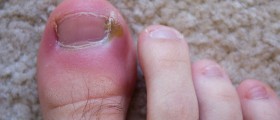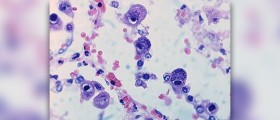
Symptoms of quinine allergy
According to the Centers for Disease Control and Prevention, 405,000 people across the world lost their lives to malaria in 2018, with death rates dropping rapidly thanks to increased efforts to...

Side effects of quinine in tonic water
Quinine is a natural, bitter-tasting alkaloid. Today, quinine is often produced synthetically in a laboratory, but it can also still be obtained directly from its natural source, the Cinchona tree. Quinine acts as...

Infertility Treatment: Herbal Remedy Tisane de Bourbon
For a couple who have been trying to conceive a baby for a long time without any sign of pregnancy, worries that you will never be parents can quickly set in...

Home treatment for paronychia
What is paronychia? Paronychia is a fairly common infection of the skin tissue surrounding the fingernails or toenails. This nail infection can be caused by bacteria as well as fungi...

Psychoactive drugs and their effects
"Psychoactive drugs" are all substances that impact brain functioning — slowing it down, speeding it up, and altering the way in which we feel, act, and perceive the environment around...

Pain in middle of chest between breasts
The human body is constantly under threat — from the environment, our lifestyle, microorganisms, and even our genetics. Though the body does its best to keep us healthy, we're...

Health benefits of quinine
Definition and history: What is quinine? Quinine is a white crystaline alkaloid that naturally occurs in the bark of the Cinchona tree, although quinine can synthetically be produced in a...

What is Cytokine storm?
What is cytokine storm? Cytokines, an umbrella term for a number of different molecules, are small proteins released by cells; they are cell-signaling molecules in the glial nervous system cells...

Swollen epiglottis
What Is the Epiglottis? The epiglottis is a "flap" in the throat that consists of elastic cartilage attached to the basis of the tongue. This leaf-shaped organ is situated right next...

Hand sanitizer dangers
The sales of hand sanitizers and similar antiseptic products increased significantly, probably because of swine and avian flu epidemics, even before COVID-19 invaded all our lives and made countless people...

